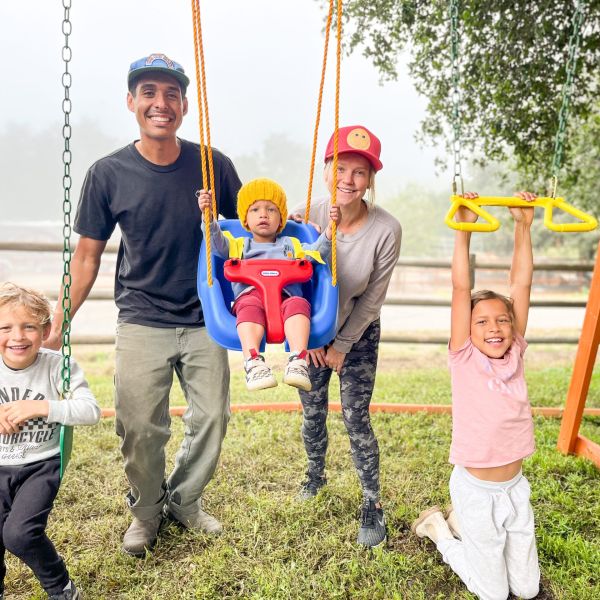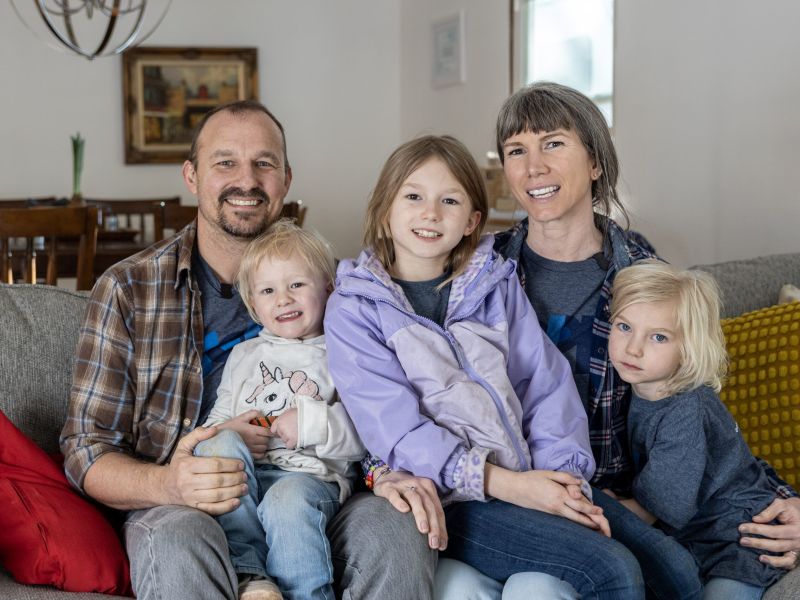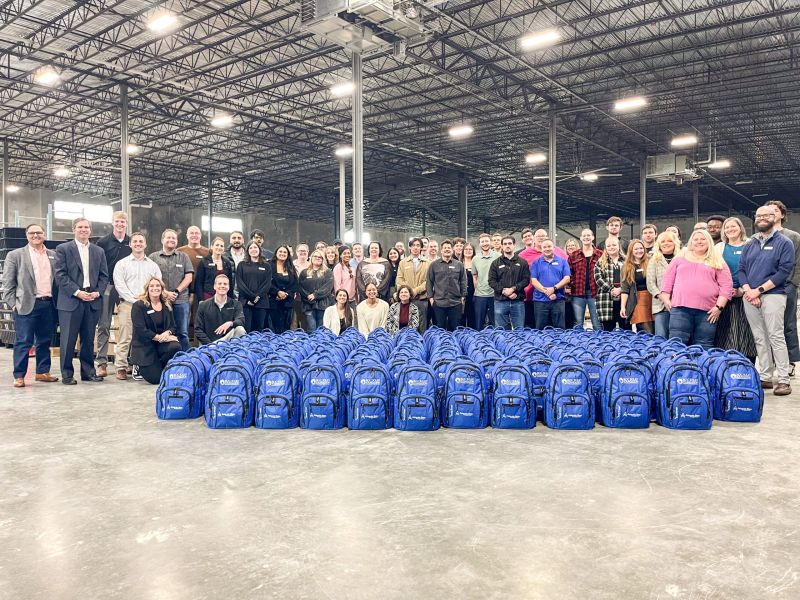Making a Difference: How to Help Families Diagnosed with Childhood Cancer

So you just found out that a friend, family member or someone in your community has a kiddo who has been diagnosed with cancer. You want to help but you are unsure of the best way to be helpful. First of all, wanting to help is a great start, and going through such a difficult time is overwhelming for the family, so your support can make a significant difference. Here are some ways you can love and serve a family who is fighting childhood cancer:
I don’t know what to say
That’s ok! First things first… you just found out a loved one’s kiddo has cancer and you have no idea what to say. Here are some helpful tips on what you should and should not say to a family who has just been diagnosed with cancer.
These are all great options:
- “I’m so sorry to hear about your child’s diagnosis. Please know that I’m here for you and your family every step of the way.”
- “I can’t even begin to imagine what you must be going through right now. Please know that you’re not alone, and I’m here to support you.”
- “My heart goes out to you and your family during this incredibly challenging time.”
- “Sending you and your child all the strength and positive thoughts in the world. You are incredible parents and I believe in your child’s ability to overcome this.”
- “I may not fully understand what you’re going through, but I want you to know that I’m here to listen and support you. Please feel free to talk to me about anything, whether it’s about your child’s treatment or your own emotions.”
- “You’re doing an amazing job as parents, and your child is lucky to have you. Remember to take care of yourselves as well. Whenever you need some time to recharge, I’m here to help.”
- “Even though it’s an incredibly challenging journey, I believe in your child’s strength and resilience. Remember to lean on your support system—You are not alone.”
It is important to let the family know your heart breaks with them and they will not fight cancer alone. Be sure to stay away from asking too many questions at first or sharing any personal experiences unless the family asks you. They are overwhelmed with the devastating news that their kiddo is sick and questions or unsolicited advice, no matter how good the intention, is often unhelpful. Here are some more examples of what not to say:
- “Oh that’s the easy/good/best kind of cancer!”
There is no easy/good/best kind of cancer, and the family absolutely does not want to hear that as they enter into their fight. No matter how your personal experiences with pediatric cancer or research have made you feel, this kind of comment could cause a negative reaction in that moment.
- “Oh no! What is their prognosis?”
Remember that any information the family is sharing with you is their private medical information. Avoid asking for more details, especially the prognosis (likelyhood of the child being cured), as it is likely to upset the family.
- “Your kid doesn’t look sick.”
This may seem like a compliment, but oftentimes this comment can make the family feel like their fight is being minimized. Avoid any commentary of the kiddo’s (or parents’) appearance whether it be positive or negative. Focus on inquiring about emotions and mental health.
My friend’s child has cancer….What should I do?
Now that you know what you should and should not say, here is what you can do to help. The family is often flooded with kind words and people’s best intentions to help, but no one really knows what is actually helpful. Here are some ideas:
Offer emotional support
Be there to listen and provide a shoulder to lean on. Understand that they are going through a range of emotions… fear, sadness, anger and worry. More than anything, being there to listen and accept all the emotions they are feeling is often more impactful than anything you can say.
Provide practical assistance
Offer to help with daily tasks such as cooking meals, running errands or doing household chores. This can alleviate some of the burden on the family, allowing them to focus on their kiddo. Instead of saying, “Let me know if there is anything I can do for you,” suggest specific and practical ways you can help. The family is likely overwhelmed but may not want to seem like a burden, so giving specific options of how you can help simplifies decisions for them.
For example, if your kiddo plays soccer with another kiddo in their family, offer to pick them up from practice and let them stay over for dinner a few nights a week. If the family lives nearby, suggest bringing over dinner and starting a load of laundry for them once a week. Suggesting small ways to help in a way that doesn’t make the family feel like you are going too far out of your way to help is the best way to take some pressure off.
If you are unable to commit a large amount of time to help, or if you live far away from the family, you can also help organize a meal train, send food to the hospital through a meal delivery service or pay to have a cleaning service come to their house.
There is power in community
Reach out to other friends, family members and community organizations to organize a support network for the family. Help coordinate schedules on behalf of the family to see who in their community may be able to help hang out with the other kids in the family while their sibling is in the hospital, who may be able to care for the family’s pets if they are in the hospital for several days, who could stop by the hospital to visit… etc.
You can also help by organizing a fundraiser to reduce the medical expenses of the family. Facebook fundraisers and crowdfunding sites are a great option. You can also rally your community to organize a bake-sale, 5k, golf tournament or school fundraiser to help fundraise as well. At Roc Solid Foundation, we built our very first playset for a kiddo fighting cancer through selling Krispy Kreme doughnuts… start small with a big heart and you can’t go wrong.
Cancer treatment is not flexible
…so you have to be. Understand that the family’s priorities and needs will frequently change throughout treatment. Be flexible and willing to adapt your support accordingly. Offer your assistance without being intrusive or overbearing and allow the family to accept or deny help as they see fit. Treatment will also severely impact the kiddo’s immune system, making it dangerous for them to be around too many other people. Be understanding and flexible when this means the kiddo or the family won’t be able to attend a fundraising event or spend time with friends and family outside of their home.
Continue to show your support even after the first few months following diagnosis—the family will need support through every day of treatment. Regularly check in with the family to see how they are doing and offer your assistance whenever needed. Remember, sometimes listening and being there is the biggest help you can offer.
For more resources about fighting pediatric cancer, read more helpful articles on The Journal.





